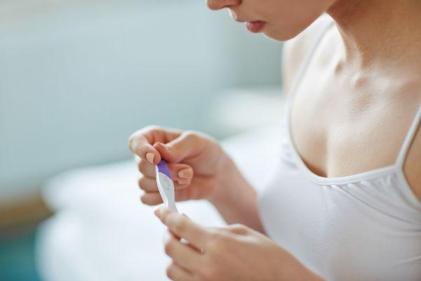 Over the past few months, I have been trying to develop the blog posts around the most common questions that we get asked. Over the past few weeks, stress is the hot topic. I am sure that the majority of you reading this post who are trying to conceive have been told to relax and de-stress at some stage to help your fertility.
Over the past few months, I have been trying to develop the blog posts around the most common questions that we get asked. Over the past few weeks, stress is the hot topic. I am sure that the majority of you reading this post who are trying to conceive have been told to relax and de-stress at some stage to help your fertility.
Stress: What does it do to the body?
We are all familiar with Adrenaline, Noradrenalin and Cortisol. The first two are amine (amino acid based) hormones that are released from the Adrenal glands in times of stress. Cortisol is released in periods of prolonged stress, in the expectation that the need for cortisol will pass and the body can 'calm down.'
Stress; what is it? Well, most of us tend to think of stress as 'being put under pressure.' However, stress has many different guises. There is the typical stress from being under pressure at work/ home with deadlines/ chores, etc., but there are many other kinds that have the exact same impact on the body and fertility. There is emotional stress, chemical stress, behavioural stress, and so on. Effectively, anything that can make us worry or become tense can be considered stress - a migraine, for argument sake, can stimulate a stress response. When we become stressed, in the immediate period we use adrenaline - like the rush before you fall off a chair. If that stress is prolonged, we use Cortisol. Cortisol, like oestrogen, progesterone, testosterone and DHEA are sterol hormones which are actually made from cholesterol.. The main way that a prolonged need for cortisol affects us is actually very straight forward.
|
Oestrogen
|
3
|
|
Testosterone
|
2
|
|
Progesterone
|
2
|
|
DHEA
|
2
|
|
Cortisol
|
1
|
If you have 10 pieces of cholesterol to make your hormones as mentioned above - well, that is relatively easy. Maybe three make Oestrogen in women/ testosterone in men, two for the rest (these levels are only for show; it is a more complex process, as you can imagine).
|
Oestrogen
|
3
|
|
Testosterone
|
1
|
|
Progesterone
|
1
|
|
DHEA
|
2
|
|
Cortisol
|
3
|
Now, as you know, sadlythe majority of us tend to be in a constant state of Cortisol dependence - one reason why we see such low DHEA and Progesterone scores in women and low DHEA and Testosterone scores in men. I would strongly recommend that if you tick more of the signs and symptoms than not, you should get your Cortisol checked in your next set of bloods.
What can we do to reduce our Cortisol?
Relax more. I tend to work quite hard, and there is nothing more frustrating than when someone says that to me. But, they are not wrong. The only way to lower Cortisol is to remove the stressor and rest up. A few of my favourite tips are:
- Get ENOUGH sleep
- Meditation
- Counselling
- Exercise
- Journaling
- Baths
- Music
- Anything that turns the mind off
- Napping
- Eating regular meals and following a low GI protocol - Look into proven supplements like a B Complex, Magnesium, Arginine and supportive nutrients like Q10
Signs and symptoms of Cortisol dominance:
|
Cognitive Symptoms
|
|
|
Emotional Symptoms
|
|
|
Physical Symptoms
|
|
|
Behavioral Symptoms
|
|














